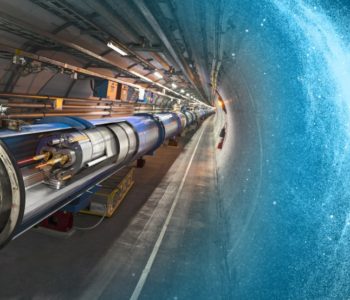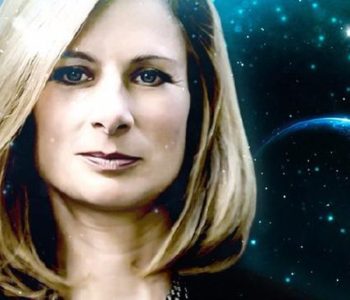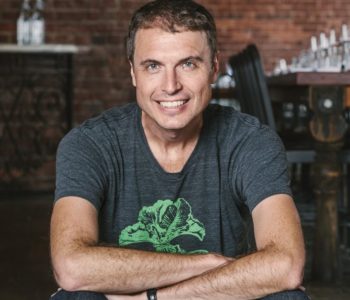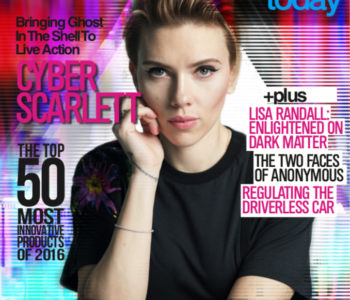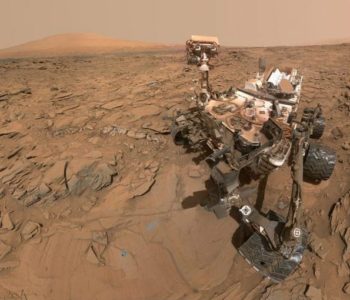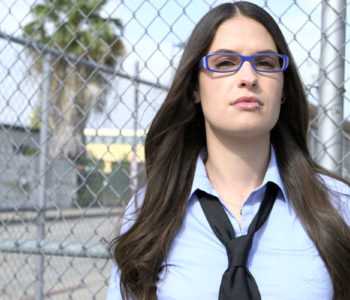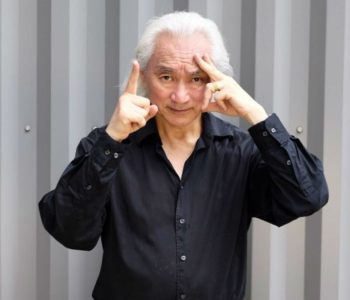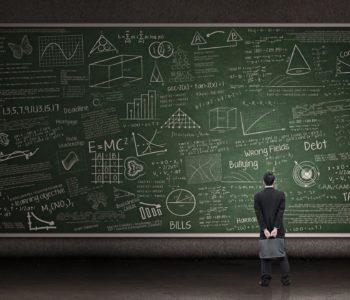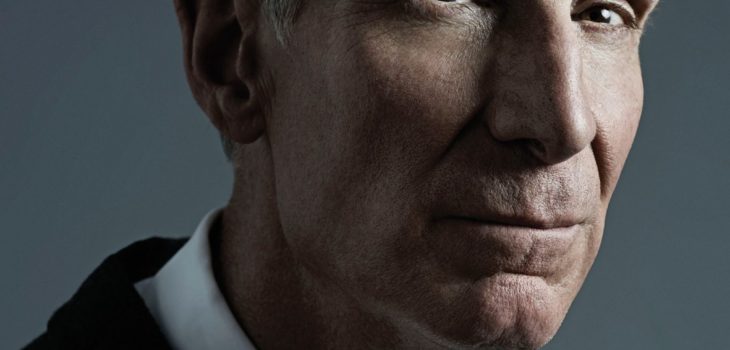 Science
Science
Bill Nye Pulls No Punches
Innovation & Tech Today: Why are events like the USA Science & Engineering Festival so important?
Bill Nye: Well, the big thing we all talk about continually is hands-on learning. You want kids to be able to touch things – not just watch them. Everybody agrees: it is important to give students an opportunity to really touch things and really see things. All of our technology and our food and our weather reports – everything comes from a relatively disease-free society compared to a hundred years ago. That’s all a result of science, so of course you want to get kids excited about that. But also, from a practical standpoint, you get to get kids excited about engineering jobs.
If you’re a corporation like Lockheed Martin who has a strong presence there, you have to get engineers in the pipeline, too. You gotta get kids excited about science and engineering so you can hire them as employees someday.
I&T Today: I think another point about the USA Science & Engineering Festival people talk about is the importance of kids having role models and seeing people who are really happy in their jobs. Do you think experience combats the stereotype that it’s uncool to be a geek?
BN: Yes. The strongest evidence I can think of is The Big Bang Theory. It is the biggest TV show on television – not just the biggest sitcom, but it has the high-est ratings all week. They’re all lovable geeks! That alone is incontrovertible evidence that it’s hip to be a square.
I&T Today: What are the biggest obstacles to getting kids in STEM?
BN: It turns out algebra is the single most reliable indicator of whether or not a kid pursues a career in science or math. It’s not clear that it’s cause-and-effect, but what we want to do is start teaching algebra earlier and have it be lower pressure. Traditionally it’s taught in middle school, and either you like it and
get into it, or you hate it and no one ever makes you do it again. We want everybody to be fluent in algebra. It’s a solvable problem. You do not need to scrap the entire school system. It’s a tweak to enable science technology engineering and math for a better tomorrow for all of humankind. Is that so wrong?!
When you have a space program, you do not have to run around obsessing about creating STEM! STEM! STEM! STEM just happens as part of your everyday experience.
I&T Today: And that’s really closely related to the project-based learning you hear a lot of buzz about, too.
BN: We love project-based learning. That’s also the hands-on learning. You want to build a robot? That’s all you.
I&T Today: And then the math and science is something that you learn so you can do something really awesome like building a robot instead of just passing a test.
BN: Yeah, exactly. This is part of the theater background, but I remind everybody, it’s test time! You nervous? Yes, you’re nervous. And before a show you’re nervous. As the saying goes, if you’re not nervous, quit doing it. When you teach people, remind everybody to take the nervousness and turn it into excitement. Not saying, WOW! A pop quiz! Cool! But just, Well, a pop quiz. Okay. Time to focus.
I&T Today: What’s the importance of adding the “A” in STEM and making it STEAM?
BN: When you do that, you diffuse it a little bit. You don’t want to eschew the arts. They’re very important. You know, I was just in Japan (recently), and it’s a real thing – when Japanese society does anything, they take into account how it looks. And why don’t we all do that? Japanese companies want U.S. students engaged with their students, because it is generally agreed U.S. students are somewhat more creative. They also want U.S. students to see disciplined Japanese science students doing disciplined things – not just dinking around. Toshiba has an exchange program. It’s called Tomodachi, which means friendship. The better you know your neighbors the more likely you’ll do business with them, and then more productive and creative everyone will be, the better the world will be tomorrow.
I&T Today: With the hashtag #TuesdaysWithBill, reading mean tweets, and your cameo on Inside Amy Schumer, do you think it’s important to really be engaging the millennial crowd and getting them thinking about and talking about science?
BN: Well, of course, but those are the people who grew up watching the show. It’s fun for me to engage them, and those are people that are going to finally change the world. This is to say we are living now in an extraordinary situation where people are denying climate change. This is a problem I realize now has to be solved in parallel with actually solving climate change. So, engaging millennials and encouraging them to vote for the environment I think in the short, medium, and long-term would be in everyone’s best interest.
I&T Today: You talk about intelligent design, homosexuality, fracking…
BN: I guess I’ve ex-pressed opinions on all those things, haven’t I?
I&T Today: Yes, and it’s really important that you do. Have you noticed a change in the political climate and how we address these sorts of issues? What role do you think science plays in shaping these conversations?
BN: The absolute most serious problem humankind faces is climate change. That is science-based policymaking. Vaccinations – that’s science. It is not freedom of choice. I have a right to not have your smallpox-infected kid running around my society. I went to elementary school with a guy who had polio. You do not freaking want polio, I’m telling you right now. So there’s a vaccine for it, and that’s a science-based policy. When it comes to homosexuality, the proof that there is a sound policy is that the Supreme Court just issued a ruling that you can marry anyone that you want. And that is also,
if you look at the biggest picture, science-based decision-making. Homosexual people exist in society. Deal! That whole thing for me is so personal. A guy wants to marry another guy. So what?! I can understand now from an evolutionary standpoint there are traditions which discourage homosexuality, because that eliminates or greatly reduces the chance of having grandkids. I can understand where top-down management of a religion would discourage that. But, there’s a lot of kids happening anyway with 7 billion people in the world.
I&T Today: So, do you think our society and the world at large would be better off if science dictated more policy and religion?
BN: Well, religion you’ve got to keep separate. That’s another idea those people who wrote the Constitution had. It’s a great idea. These guys running for president right now bringing it up is very troubling. But we want science-based everything. This doesn’t mean you seek a single scientific authority and do what he or she says. It means you have a society where all the voters and taxpayers are scientifically literate. They’re not all engineers. They’re not all scientists. They don’t all write scientific papers. But they have an appreciation for it in the same way everybody has an opinion on what’s right and wrong as manifested in our laws. People have opinions about whether or not a law is good. In the same way, we want everyone to have an opinion about science from scientifically literate society.
I&T Today: I’m interested in how you would go about differentiating a good scientific perspective from a bad one.
BN: That’s the whole thing – we want everybody involved. The one thing you can count on in science is that it’s going to change. The information you find tomorrow’s going to be different from the information you have today. That’s part of the process, and that’s what we celebrate. So when it comes to climate change, it has been politicized. That is to say you can argue about whether or not it’s really happening. That’s wrong from a scientific standpoint. Climate change is very well-documented from a scientific standpoint, and at least 97% of the world scientists are very concerned about it. But in the United States, especially the fossil fuel industry has been involved in so many political campaigns, a great number of politicians have been influenced to believe or to say they believe that climate change isn’t a settled issue. That is based on the fossil fuel industry.
I&T Today: I love what you said about the millennials being the ones to change the world.
BN: Climate change denial is not entirely, but generally, a generational issue. Millennials do not deny climate change. It’s old guys, people my age, who deny climate change.
I&T Today: I think that they’re more savvy than we give them credit for, and they have a few tricks up their sleeves to be a positive force for change especially with regards to climate change and maybe politics. What you think about that?
BN: Well, I mean that’s my dream. Last night, I submitted the last version of the manuscript of my next book, which is called Unstoppable: Climate Change in the Next Great Generation. My parents were both veterans of World War II. My dad was a prisoner of war, and my mom was in the Navy. People call them the ‘Greatest Generation.’ I want the millennials to be the next Great Generation. I want them to change the world. This is my hope. This is my dream. This is what I work towards.
I&T Today: Have you noticed a change in corporate America’s attitude toward sustainability?
BN: Well, green is the new black as they say. Corporations have their whole brands based on this now. The interesting thing is an organization like REI. They’re like, Hey! We were here first! Whole Foods and Chipotle, too. These guys are all about sustainability. You go into a restaurant, and the pork is all grass fed. It’s in the culture. In car companies, you have fully recyclable body panels, recyclable tires, and so on. It’s all the rage. Of course, from my point of view it’s not enough, but the longest journey begins with a single step.
I&T Today: Hopefully it’s moving away from just the lip service that you’ve seen in the past, even if it is just in small steps.
BN: Well, small steps are how you get going on this. And the millennials are going to demand it. There’s an interesting market question. I just mentioned Chipotle (it must be on my mind). They’re saying, no genetically modified organisms. We’ll see how well that does. We’ll let the market sort that out. I strongly feel that genetically modified organisms are not inherently bad. We’ll see how that sustainable that is for businesses – if they can raise enough food without GMO’s, if people really do prefer the old technology flavors versus the new ones.
I&T Today: What are the biggest obstacles to having your dream of millennials changing the world actually coming to fruition? On the other hand, what are the most encouraging things you’ve seen in this group of people that lead you to believe this could happen?
BN: These people, those who work at the Planetary Society, they work hard. They’re enthusiastic, passionate people who accomplish great things. And the technical savvy is after my time. Double thumbs juggling. It’s amazing. The obstacle is climate change denial. It’s a serious problem in the U.S. The other thing is people feeling powerless. The problem is so big, there’s no way to get started on it.
I&T Today: I think they don’t believe they have a voice. Politics is all bought and paid for, so it is hard to get representatives who stand up for what the people want.
BN: And it’s not that they’re evil. It’s that we’ve accidentally created a system where you need so much money to stay elected. This goes back to gerrymandering of congressional districts. Each time it was done, it seemed like kind of an okay thing to do. But we’ve gotten really out of hand. Gerrymandering is a solvable problem. It’s going to take voters and taxpayers agreeing that we need to solve it, but the biggest picture to remind everyone of is we’re more alike than we are different. You think you don’t have anything in common with those people in that neighborhood, but you do. The reason we don’t fix gerrymandering is for the most part because we’re afraid of people that we don’t know. It turns out that you actually have more in common with them than you think. That’s my claim.
I&T Today: What are your thoughts on home automation and the Internet of Things?
BN: I have a Nest thermostat, and it’s fantastic. It cools off the house from my car. This week, I had use of the BMW i3. It’s their small electric vehicle, which is excellent. And you have got to be able to check your vehicle’s state of charge from your phone! You need that as part of your life! After you drive an electric car, you will never go back. One of the reasons you’ll never go back is when you get in your car in the morning, the cabin has been preconditioned: the air-conditioner or heater has been turned on. It’s automated. I’m a big fan of that having sensors in the refrigerator reminding you get a get a quart of milk. With that said, you have to protect the infrastructure. You cannot let the Internet get hacked. It cannot go down. These are things we have to keep in mind. The Internet isn’t a luxury, it’s a necessity. I’m a big fan of net neutrality. As soon as you have a communications company making a deal that gets you faster Internet than your neighbors, you’re heading for trouble. You want to democratize information.
I&T Today: What do you think about the line of reasoning that privatizing Internet will make for a better product?
BN: Disagree. Do you want to privatize the sewer? To privatize the voltage? Over here we use 195, over here is 98 – No! That is almost certainly lobbying from communications companies who see the opportunity to make a very good living without having to change much. In fact, you could even argue that service would go down if you privatize it. What does everybody complain about? Any talk show host can make a joke about the cable company. There is a comedian, Larry the Cable Guy, whose name is a joke. I want everybody to have a highest-quality Internet possible. In the argument that the free market always does it better, I disagree. The example everybody gives is that we went to the moon. Yes, we went to the moon on the lowest bidder. Hoover Dam was built by private companies, but somebody had a vision. It was not a private company. Somebody will make wire, somebody will make modems, and somebody will make Bluetooth devices. But the standards will be agreed upon through a democratic process, and the quality will be kept up because you want the best service for everyone.
I&T Today: Is that the same with healthcare?
BN: Yes! Well, yes! That’s a solvable problem. Why not have the best healthcare in the world in the United States? Why not have the best healthcare for everybody?
I&T Today: A recurring theme in our discussion is the alignment of science with common sense. It seems like the two are connected in one way or another.
BN: Well, as my parents, especially my mom so often said, “Common sense is not that common.” It seems obvious to me that you don’t have poor people who can’t get access to the Internet. That’s not in your best interest. You do not want a situation where rich people get water for their lawns, but poor people can’t get clean water for the baby’s formula. As obvious as that is to me, other people think if someone doesn’t have money, they just shouldn’t have [that resource]. They’re just as passionate and believe just as strongly as I do, but I just disagree with them. What we want is for everyone to get a vote, and then we sort out what’s right and wrong. I’ll give you an example. I used to think genetically modified food was sort of dangerous because we couldn’t predict what would happen in the ecosystem. But, after having spent another two years with it, I was wrong. I think genetically modified food is actually a pretty good idea. What we need is not to regulate new organisms so much as to regulate farming practices.
I&T Today: Since science changes over time and new studies sometimes disprove what we thought was foundational, do you think people use that fact to further solidify their religious or political beliefs? Are they misguided in doing so?
BN: Dismiss science because it changes? No, we prefer you dismiss your other beliefs. Everyone would really prefer that. For a long time people thought that diseases were caused by evil spirits. A reasonable premise, but it turns out that’s not what causes diseases. People used to think that only virgin women could plant seeds to have a successful harvest. That’s probably not true. It’s a hypothesis that you can disprove, so that’s the essence of science. And that it does change is not to say that everything changes. Because science change doesn’t mean that Rubidium has a different number of protons. There are a lot of things in science that are true that are going to be true forever. The sun is hot. There you go. People used to think that emotions come from your heart, but they most certainly come from your brain. People didn’t believe that blood circulated in veins and arteries, for crying out loud!
Hear more from Bill Nye the Science Guy this coming April at the USA Science & Engineering Festival in Washington, D.C.


